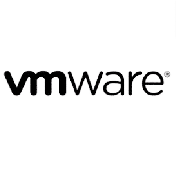Seminarinhalt
By the end of the course, you should be able to meet the following objectives:
- Define the tasks involved in vSAN node management
- Updating and upgrading vSAN using VMware vSphere Lifecycle Manager™
- Explain vSAN resilience and data availability features
- Reconfigure vSAN storage policies and observe the cluster-wide impact
- Perform vSAN cluster scale-out and scale-up operations
- Describe common vSAN cluster maintenance operations
- Control vSAN resync operations
- Configure vSAN storage efficiency and reclamation features
- Use VMware Skyline™ Health to monitor cluster health, performance, and storage capacity
- Describe vSAN security operations
- Configure vSAN Direct for cloud native applications
- Configure remote vSAN datastore and vSAN native file services
- Manage two-node cluster and stretched cluster advance operations
Product Alignment*
- VMware ESXi™ 7.0 U1
- VMware vCenter Server® 7.0 U1
- VMware vSAN 7.0 U1
Hinweis: Bei kurzfristigen Buchungen, 1 Woche vor Seminarbeginn, können wir Ihren Seminarplatz leider nicht garantieren. Es kann daher zur Verzögerung bei Ihrer Anmeldebestätigung kommen.
Programm
- Introductions and course logistics
- Course objectives
vSAN Node Management
- Recognize the importance of hardware compatibility
- Ensure the compatibility of driver and firmware versioning
- Use tools to automate driver validation and installation
- Apply host hardware settings for optimum performance
- Use vSphere Lifecycle Manager to perform upgrades
vSAN Resilience and Data Availability Operations
- Describe vSAN storage policies
- Recognize the impact of a vSAN storage policy change
- Describe and configure the Object Repair Timer advanced option
- Plan disk replacement in a vSAN cluster
- Plan maintenance tasks to avoid vSAN object failures
- Recognize the importance of managing snapshot utilization in a vSAN cluster
- Configure the vSAN fault domains
vSAN Cluster Maintenance
- Perform typical vSAN maintenance operations
- Describe vSAN maintenance modes and data evacuation options
- Assess the impact on cluster objects of entering maintenance mode
- Determine the specific data actions required after exiting maintenance mode
- Define the steps to shut down and reboot hosts and vSAN clusters
- Use best practices for boot devices
- Replace vSAN nodes
vSAN Storage Space Efficiency
- Discuss deduplication and compression techniques
- Understand deduplication and compression overhead
- Discuss compression only mode
- Configure erasure coding
- Configure swap object thin provisioning
- Discuss reclaiming storage space with SCSI UNMAP
- Configure TRIM/UNMAP
vSAN Cluster Performance Monitoring
- Describe how the Customer Experience Improvement Program (CEIP) enables VMware to improve products and services
- Use vSphere Skyline Health for monitoring vSAN cluster health
- Manage alerts, alarms, and notifications related to vSAN in VMware vSphere® Client™
- Create and configure custom alarms to trigger vSAN health issues
- Use IO Insight metrics for monitoring vSAN performance
- Analyse vsantop performance metrics
- Use a vSAN proactive test to detect and diagnose cluster issues
vSAN Security Operations
- Identify differences between VM encryption and vSAN encryption
- Perform ongoing operations to maintain data security
- Describe the workflow of data-in transit encryption
- Identify the steps involved in replacing Key Management Server (KMS)
vSAN Direct
- Discuss the use cases for vSAN Direct
- Understand the overall architecture of vSAN Direct
- Describe the workflow of vSAN Direct datastore creation
- Explore how vSAN Direct works with storage policy tagging
Remote vSAN
- Discuss the use cases for remote vSAN
- Understand the high-level architecture
- Describe remote datastore operations
- Discuss the network requirement
- Interoperability between remote vSAN and VMware vSphere® High Availability
vSAN Native File Service
- Discuss the use cases for vSAN file service
- Understand the high-level architecture of vSAN file service
- Discuss the authentication model
- Configure file shares
- Monitor file share health and capacity utilization
Manage Advanced vSAN Cluster Operations
- Describe the architecture for stretched clusters and two-node clusters
- Understand the importance of witness node
- Describe how stretched cluster storage policies affect vSAN objects
- Create and apply a vSAN stretched cluster policy to meet specific needs
- Discuss stretched cluster failure scenarios and responses
Zielgruppen
- Storage and virtual infrastructure administrators who are responsible for production support and administration of VMware vSAN 7.
Vorkenntnisse
- VMware vSphere: Install, Configure, Manage [v7] or equivalent knowledge
- VMware vSAN: Plan and Deploy [v7]





Interessanter Kurs.
VMware vSAN: Management and Operations [V7]
14.03.2019Interessanter Kurs.
— Sebastian H.